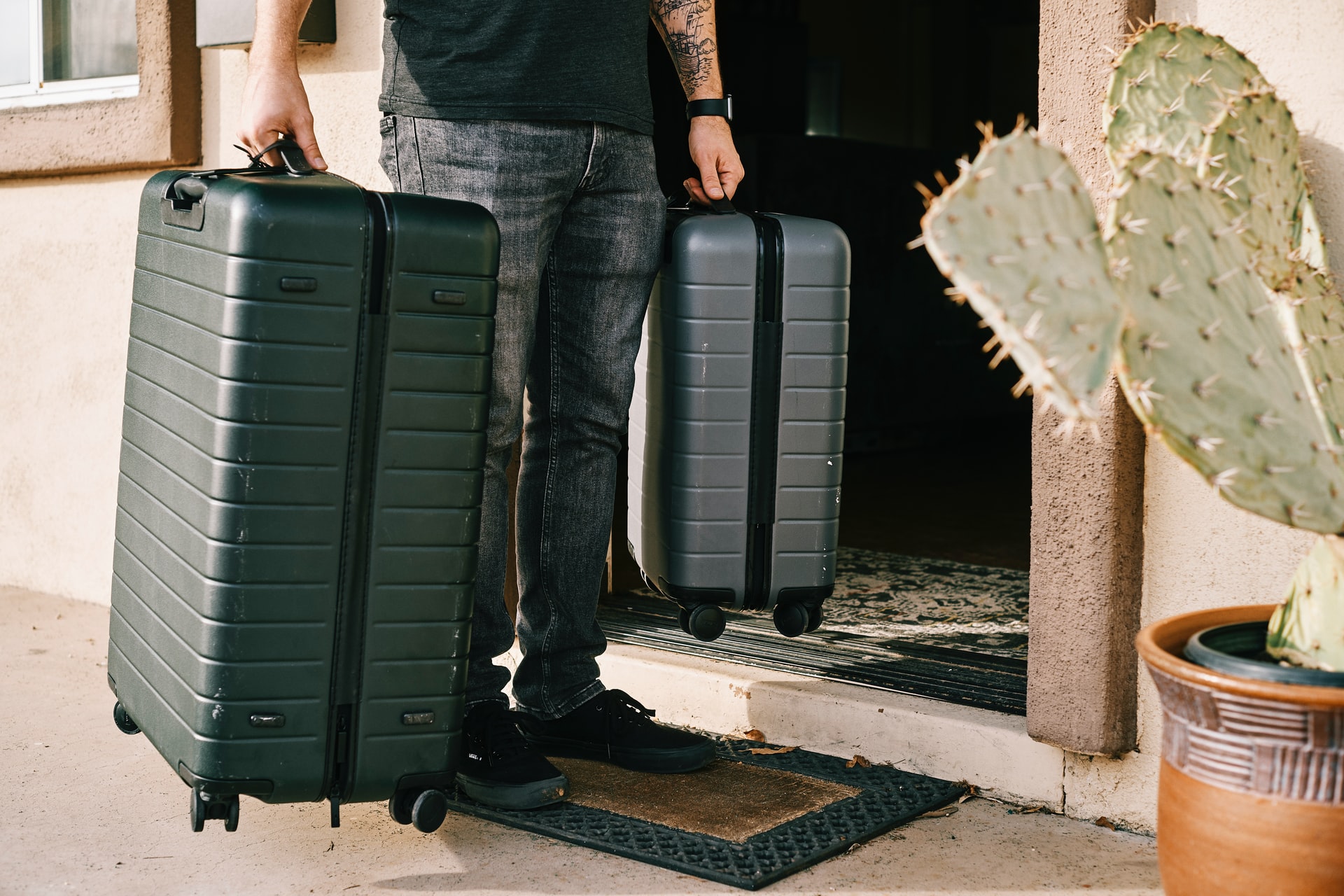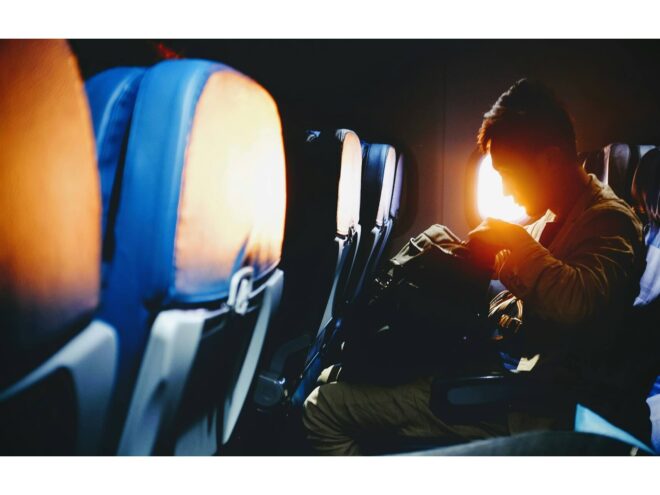Adventure • 02/15/2023
8 Essential Safety Tips for Traveling

Revivalist is a reader-supported endeavor and our posts may contain affiliate links. When you buy through links on our site, we may earn an affiliate commission.
Traveling is a delight, especially now that many locations have lifted pandemic restrictions. However, infectious disease isn’t the only risk you face when you hit the open road. Criminals love to prey on travelers, knowing they’re in unfamiliar territory — and those on vacation typically aren’t on their guard. What can you do to protect yourself, especially if you feel vulnerable? You don’t want unnecessary fear and stress to ruin your journey. Instead, prepare and heed these eight safety tips for traveling.
1. Leave a Flight Plan
While it may seem romantic to take off to parts unknown without telling anyone, doing so is a safety don’t. It doesn’t matter if you fly, drive, take a train or hike — you should always leave a flight plan with someone on the home team before you depart. If you go missing, people have to know where to look.
Let someone you trust know your flight times and numbers, the name, address and phone number of your hotel and the contact of the nearest embassy if traveling overseas. Those going on road trips should leave a detailed map with your planned route — and recognize that you need to notify this individual if you need to take a detour.
You can now use technology to ease minds back home while you travel. Apps such as Life360 help you keep tabs on family members from anywhere as long as you have them installed on your devices. It isn’t a flight plan replacement but an extra layer of security for safety while traveling.
2. Schedule Check-ins
If you’re going on an extended trek, it’s wise to check in with the folks back home on a scheduled basis. Otherwise, they might not know that you need help if something prevents you from contacting them.
Arrange times when you’ll meet by phone or, better yet, Facetime. That way, they can see your smiling face. If you miss a scheduled appointment, they know to try to reach you and contact authorities if they can’t.
3. Invest in Added Security
Many hotels are reasonably safe — more on choosing the right one below. However, even the best establishments aren’t immune from criminal minds. Investing in added security for yourself, your devices and valuables is wise.
You’re better off leaving your finest jewelry at home. However, you should avail yourself of the hotel room safe for locking your watch and other expensive items.
Additionally, consider investing in the following safety devices before departure:
- A portable door lock: You should always hook your hotel room’s chain, but these gadgets give you an added layer of security. You can also find under-the-door screechers that awaken you if someone tries to enter while you sleep.
- A set of AirTags: If you have an Apple, these gadgets sync with your phone’s “Find My” feature, helping you track lost items.
- A portable lock box: If you absolutely must take your grandma’s diamonds to that destination wedding, the hotel room safe might not feel secure enough. You can sleep easy knowing no one has the code to the number you bring yourself.
- A hidden travel belt: These keep your passport, wallet and credit cards close to your skin and away from pickpockets. You decide if you want to carry a dummy wallet as an additional deterrent.
- An emergency whistle: You can’t take weapons like pepper spray on a plane, but a whistle does an excellent job of gathering attention in an emergency.
- A VPN: While it’s good advice to avoid checking your bank account on hotel WiFi, sometimes it’s unavoidable. Protect your privacy with a VPN that keeps your online activity hidden from spying eyes.
4. Investigate the Scene
The cheapest hotel isn’t necessarily your best bet. It’s not only the venue that matters but the neighborhood. Before you book, read customer reviews carefully, including those on third-party sites like Yelp and Google. Research the area safety record — you can find apps to assist you these days.
Furthermore, phone the hotel directly and inquire about safety features. For example, some establishments have dedicated car fleets to take travelers to their destinations, eliminating the need to risk an Uber in a strange city.
5. Keep Your Devices Charged
Few things are more frustrating than finding your phone dead when you urgently need it. It could become the deciding factor in a life-or-death situation.
Keep your devices charged, plugging them in overnight, so they’re ready to go the next day. Invest in a portable power pack so you can always grab some juice on the go.
6. Prepare for Medical Emergencies
As much as people want to act like it’s over, COVID-19 still poses threats, causing hassles with flight delays and sickening travelers. Now is not the time to put away that N95 if you’re vulnerable. Regardless of your health status and official decrees, you should mask up if you fly. While it’s not a failsafe, it drastically reduces your risk of infectious disease as you share air with countless strangers.
Furthermore, you should always carry a well-stocked first aid kit with you when traveling by any means — plane or car. It should include a supply of any prescription medications, various bandages and antiseptic wipes and antibiotic ointments, contact solution and eye rinse and any over-the-counter medications you rely on like Tylenol.
Ensure you know where to go if you get sick while traveling overseas. While many other countries have far more affordable health care than the United States, it benefits you to purchase separate insurance coverage. You may need to, if crossing state lines in the U.S. — contact your carrier to make sure.
7. Allow for Extra Time
One of the best safety tips for traveling is to give yourself extra time. Many accidents happen when people feel rushed, especially in unfamiliar surroundings.
Plan on an extra 30 minutes over what you’d normally estimate. If you arrive at your destination early, there’s sure to be something fascinating for you to explore.
8. Learn Some Basic Mechanics
Are you going on a road trip? If so, a breakdown can be your worst travel nightmare. You don’t have to become a mechanic, but it helps to know the basics — it can take a long time for roadside assistance to reach some locations.
Ensure you know how to change a tire and add fluid to your radiator. Carry the basics, like a jack, a spare and a small tool kit. You should also have emergency triangles and flares and plenty of water. A few snacks and blankets also come in handy if you have to wait a while for help to arrive.
It also pays to ensure your insurance pays for tows, and if so, how far. Many carriers limit your coverage, and you may need to invest in a rider or a service like Triple-A to protect yourself on long trips.
Safety Tips for Traveling
Traveling is one of life’s great joys and does wonders for your outlook. However, you have to play it safe to enjoy your trek.
Follow the above safety tips for traveling to secure yourself wherever you roam. You’ll enjoy your destination more when you first put your mind at ease.
Subscribe to Our Weekly Newsletter
We would love to connect deeper with you!


